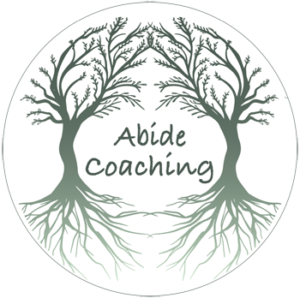My son’s first day of school is today so homework time will be here soon for everywhere. Parents aren’t fans of homework time either; a frustrated student can bring down a household faster than anything else. Part of what I do in my work with students from middle school to grad school is set up systems around homework/assignments.
Students with ADHD or other executive function deficits need to externalize their executive functions. The ADHD mind wants stimulation and the truth is reading Huck Finn at home alone in your room is a great way to take a nap. Doing math homework is a great way to have your mind wander to just about anything else. Nothing exciting happens when you get a math problem right or wrong.

Try externalizing these executive functions first to make an improvement:
- Time management-
- Hello, timer! The louder the better. The timer can be used to start an activity or to stop an activity. If using the time to start an activity, the rule should be obeyed or snooze. Meaning you either start when the timer goes off or you snooze the time until you actually start. You may want to snooze the alarm if you are currently doing something that you will finish within 5 minutes. If you are using the time to stop an activity like homework the length time depends on the age of the student. The timer should be set for 5 minutes (K-2) to 60 minutes (college-grad school). I like Timetimers because you can see the time disappearing.
- Text yourself! Really it works. I do it all the time. Apps like SendItLater allows you to pre-set up text that goes out at a specific time and date. It also makes it look like I never forget anyone’s birthday if you set it up. My student clients use it to remind them that it is time to do homework, transition from one activity to another, to leave for whatever practice they have, to do chores like taking out the trash without nagging and much more.
- Alarms are great if they work for specific individuals. I find that after a while students tend to ignore them unless they are used sparingly.
- Prioritizing-
- After having a list of what needs to be done, consciously pause.
- Ask yourself, “Is this something I need to do?” No – delete it. Yes – Keep it on your “list”
- Then ask yourself, “When must this be finished?” The sooner it needs to do finished the sooner the higher the priority.
- Hello, Agile! Use a visual system like an agile to-do system. Experiment – I like the simpler three column system. Try different colors for the different categories like school, homework and extracurricular.

- Working memory-
- Take notes! While reading to make you more engaged. The note taking will help you remember more plus now you have notes to refer to. Try saying what you are writing down out loud or read out loud. When taking notes don’t just copy. Put it in your own words. In class, take Cornell notes so that you can review the information more easily. Use a planner, for activities, rehearsals, practices, homework assignments. Ideas? Are you full of great ideas? Write them down in a notebook or journal. Writing information down frees up your executive functions to focus on other tasks; trying to keep all that information in your head is exhausting.
- Use a checklist of repeated activities, like a morning routine, night time routine, chores, etc
- Have one binder/accordion file so you always have all your school supplies
- Task initiation- (aka stop procrastinating)
- Why? The reason behind why are doing something or need to do something is motivating for people. We don’t act on instinct like animals. It may seem silly to ask yourself, “Why am I doing my math homework?” because the answer may seem like it is “because it is due tomorrow” but I want you to go a little deeper. Maybe the real answer is I want to do well in class, I like my math teacher so I don’t want to disappoint him, I want to make my parents proud of me, I have to get through this class to get to my goal of graduating. Write these down or tell someone else who will check up on you.
- Ask yourself, “How will I feel?” Think about how completing a task will make you feel about yourself. These should be positive thoughts like, “I would be proud of myself.”
- Ask yourself, “What will be a outcome?” Some answers may be “I will do well in class or my parents will be proud.”
- Reward- Sometimes we need a reward other than natural consequences that occur. Set something up that you will enjoy doing like hang out with friends or playing video games, after doing tasks with are particularly difficult for you.
- Don’t go it alone – I have found for many of my clients with ADHD that relationships are motivating. They don’t like or want to let other people down. Find a study buddy, a study group, an executive function coach, or a tutor.
Remember it is a process. You are looking for improvement not perfection!
